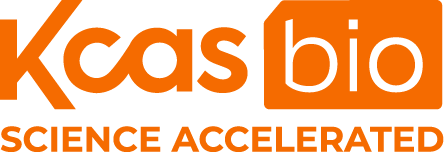Recently, the role of hybrid liquid chromatography-mass spectrometry (LC-MS/MS) in the analysis of antibody-drug conjugates has increased due to the complexity and number of bioanalytical assays needed to support this modality in the drug development process. Antibody-drug conjugates tend to consist of a toxic small molecule payload attached via a linker to an antibody. The application of these drugs had mainly been in oncology where their mode of action is for the antibody to attach at the desired target site with subsequent release of the small molecule to combat tumor cells.
Recently, a much wider application or use of “ADCs” to other modalities such as antibody-peptide conjugates, antibody-RNA conjugates (ARCs) or even other more complicated multi-functional entities has been reported. Traditionally, LC-MS/MS has mainly been applied to the quantitation of the small molecule payload or the linker moiety. Ligand-binding assays are highly successful for the quantitation of the total antibody and sometimes may be suitable for the quantification of intact antibody-drug conjugates.
Read more...
This also gives scientists flexibility for the quantitation of antibody-drug conjugates. In many cases, ligand binding or hybrid LC-MS/MS can be applicable. However, poor reagents or limited availability of reagents can limit the immediate application of ligand binding. The ability to approach the analysis from different angles to gain multiple insights into the analyte can increasingly nudge the decision towards the use of LC-MS/MS.
Read Less...
In many preclinical cases, “generic” methods that make the method development and analysis much quicker and more cost-effective are used. At the very least, the availability of hybrid LC-MS/MS as an alternative technology greatly increases the chances of success in the bioanalysis of antibody-drug conjugates.
Hybrid LC-MS/MS is proving to be an increasingly valuable tool for delivering answers about complex analytes such as antibody-drug conjugates to enhance the drug development process. Register for this webinar today to get an overview of the bioanalysis of antibody-drug conjugates.
Speaker

Dawn Dufield, Scientific Officer, Mass Spectrometry, KCAS Bio
Dawn R. Dufield is the Scientific Officer for Mass Spectrometry at KCAS Bio. She has been at KCAS since 2018 and was previously with Pfizer for over 20 years working in the quantitative large and small molecule LC-MS/MS field. She was one of the early pioneers of using immunoaffinity combined with LC-MS/MS to offer additional selectivity, which is now commonly referred to as hybrid LCMS. She is a co-author on a white paper on recommendations for the validation of LCMS-based bioanalytical methods for protein biotherapeutics. She has been working on the bioanalysis of ADCs for over 15 years and has contributed to a book chapter on this topic. She has numerous publications in her field and is an active member of AAPS and ASMS.
Who Should Attend?
This webinar will appeal to:
- Anyone wanting to learn more about ADC bioanalysis
- Companies developing various conjugation modalities (ADC, ARC and other conjugates)
- People trying to understand when hybrid technology is a useful bioanalytical approach
- Small biotechs to large pharma
- Analysts, Scientists, Directors and Senior Management
What You Will Learn
Attendees will learn about:
- The bioanalytical challenges associated with ADCs
- Different types of modalities that are classified as ADCs
- The different strategies for developing “ADC assays” based on
- Information needed
- Types of conjugation and linker chemistry
- Reagents available — generic vs specific (pre-clinical and clinical) approaches
Xtalks Partner
KCAS Bio
KCAS Bio is a leading contract research organization (CRO) employing top scientific talent which provides comprehensive bioanalytical services to the global biopharmaceutical industry from early discovery support through product registration and beyond. KCAS Bio offers bioanalytical, biomarker, immunogenicity, cellular and molecular assay services along with clinical kitting and sample management. KCAS Bio operates in state-of-the-art facilities in the United States and Europe, with the expertise, capacity, and flexibility to support the development of all types of drugs, biologics, cell and gene therapies to improve health worldwide.
You Must Login To Register for this Free Webinar
Already have an account? LOGIN HERE. If you don’t have an account you need to create a free account.
Create Account





